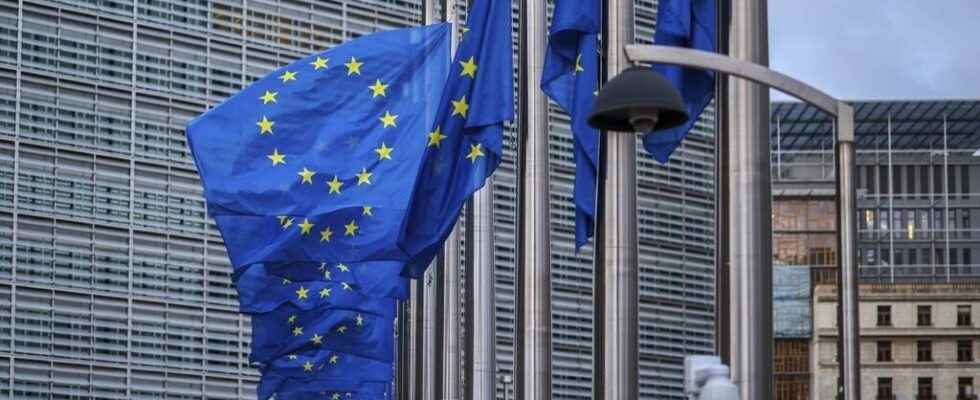The Twenty-Seven reached an agreement on Friday, December 2 on a cap of 60 dollars per barrel on the price of Russian oil, a tool designed by the West to deprive Moscow of the means to finance its war in Ukraine.
The agreement, which had been tied up on Thursday by the ambassadors of the EU member countries, coordinated on this file with their G7 allies, in particular the Americans and the British, as well as Australia, remained suspended from the decision of Warsaw. , which gave the green light on Friday evening. ” We can officially endorse this decision “, declared in Brussels Andrzej Sados, Ambassador of Poland to the European Union. ” The EU remains united and stands in solidarity with Ukraine “, for its part, welcomed the Czech Presidency of the Council of the EU in a tweet, specifying that the decision would come into force as soon as it is published in the Official Journal.
The EU system must prohibit companies from providing services allowing the maritime transport (freight, insurance, etc.) of Russian oil beyond the $60 ceiling, in order to limit Moscow’s revenue from its deliveries to countries like China or India. The instrument must reinforce the effectiveness of the European embargo which comes several months after the one already decided by the United States and Canada.
A more restrictive threshold
With this threshold of 60 dollars per barrel, the European system is even more restrictive than the initial idea, that of the G7, which proposed five to ten dollars more, reports our correspondent in Brussels, Pierre Benazet. It is therefore an additional shortfall that the EU expects to inflict on Russia, while imposing a threshold that remains higher than the cost of production. This is the way that Europeans have found to avoid being accused of creating a situation of shortage. They hope that Russia will always be keen to export its oil since there will always be a profit margin, but at the same time they are chipping away at that margin.
The 30 dollars proposed by Poland were discarded so as not to create a global shortage, but Warsaw nevertheless obtained a double trigger mechanism: in the event that the price of crude oil falls below 60 dollars, a new European threshold would be set 5% below the price.
Non-EU countries that want to buy Russian oil will have to prove that they are buying it at 60 dollars, otherwise European tankers and European marine insurers will be forced to refuse to transport their cargoes. At present, G7 countries provide insurance services for 90% of global cargoes and the EU is a major player in maritime freight, hence a credible deterrent, but also a risk of losing markets to competitors.
(And with AFP)
